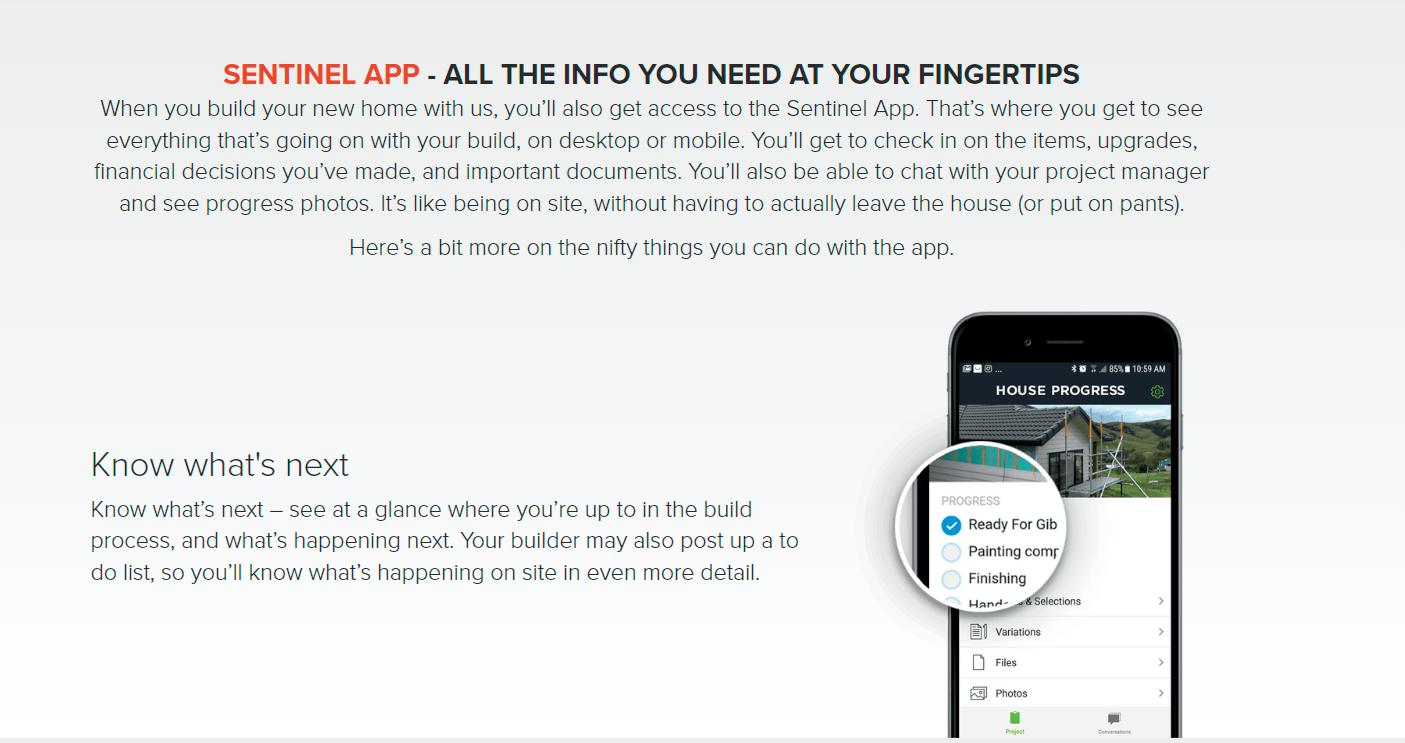Let'sTalk Property




The2022mortgagemarketwasoneforthe historybooks.Wesawinflationriseto7.3%-a30 yearhigh,promptingTheReserveBankofNZto increasetheOfficialCashRate(OCR)from1.00% inFebruaryto4.25%inNovember.Thishada directaffectonmortgageinterestrateswhich meantbothbuyerslookingtogetstartedinthe market,andhomeownersneedingtorefix,were potentiallyfacedwithmortgagerepayments greaterthantheyanticipated
Aswestart2023it’simportanttorecognisethe trendofincreasinginterestratesiscontinuing. AnotherOCRannouncementisdueinFebruary withmanyeconomistspredictingtheOCRwill reach55%bymid-2023 Thiswillagainhavean impactonmortgageinterestrates,however thereisspeculationastohowhightheywillgo.
AverageFloatingRate7.91%
Fixed1year–6.58%.
Fixed2year–6.54%
Fixed3year–6.63%
Fixed5year-6.61%
(1)Figuresaccordingtoaveragestandardinterestrateson13February2023 Interestrates offeredcanvarybetweenLendersandvarybasedonthe clientsposition
(2)Specialratesrequireaminimumdepositof20%/LVRislessthan80%;Otherlender T&Csapply
Whiletherehasbeenariseininterestrates,we haveareenteredabuyer’smarketwithless competitionandmanysellersneedingtosell
This has created a great opportunity for buyers exploring their options in the market, with many properties being sold well below 2021 prices. The amount of lending that applicants can qualify for has reduced (due to the rise in Lending test rates) In contrast there may be properties now within your budget, that were once out of reach

How to know what you can afford?
“How much can you afford to spend on your mortgage each week?” This is your budget
You should always focus not on how much you can qualify for, but rather what you’re confident your family can spend on mortgage repayments
$500,000 $ 767 per week / $3,327 per month
$750,000 $1,151 per week / $4,990 per month
$1,000,000 $1,534 per week / $6,653 per month
Focus on what your family can spend on mortgage repayments.
Look at the repayments at 8%. This will help ensure the mortgage repayments are reasonable for you with a mortgage that size. If you’re able to secure an interest rate lower than 8%, great! However, you’ll have greater confidence that if rates continue to increase until you refix you’re prepared.
Sellers in this market have a reason to sell When an opportunity arises, being ready to present an offer quickly may be the key to a successful outcome. Valid for ~90days, you’ll have time to browse & negotiate already having finance arranged.
Sometimes an opportunity pops up quickly! Having structure to your bank accounts & being able to provide the appropriate documents promptly eg. finalised March 2022 financial statements (business owners) will mean we’re able to submit your application with a faster turnaround.
Refinancing may save you thousands

Refinances are becoming increasingly popular as clients aim to lock in lower rates for years ahead, while taking advantage of competitive cash contribution promotions.
Your adviser will analyse if it’s worth refinancing taking into account potential break costs, cash clawback, and legal fees.

If your mortgage is up for refix in mid-late 2023 and beyond, a great option is to adjust your repayments now to your expected repayments after refixing. This may be significant and adjusting your lifestyle now may put less pressure on at the time you refix.
*Consult your adviser or Bank first as T&C’s apply*

2 months before your mortgage is due to refix, reach out to your adviser. This gives you time to review your structure, explore interest rate options and potentially lock in a rate early without incurring break costs.

2023 is going to be a challenging year filled with opportunity. The role of your mortgage adviser is to support you through the process, helping you explore & facilitate your potential lending options.
If you are thinking about building your new home or in the process of building, you are not alone feeling that the process is a series of ups and downs The past couple of years have been a roller coaster ride with many twists and turns that no-one could plan for.
Looking back, COVID-19 and multiple lockdowns meant work on construction came to a virtual standstill. Throw in border closures, labour & material shortages, interest rate hikes and the election and construction has been difficult.
And if the start of 2023 is anything to go by, it's not going to be easy to catch-up with the backlog.
Our construction teams have started 2023 with an unprecedented number of events that cause delays to projects. The frustration levels for both the client and the build teams are at all time highs. But construction must continue, and it just means we have to adapt and prepare for a wider range of issues
As a builder, nothing is more important than keeping on track, and any competent builder will be using a project management tool or project plan, whether it’s an electronic app or paper based.

Each task is recorded in the project and collectively the tasks add up to the total time to complete the build
Unplanned events like cancelled council inspections, incorrectly delivered materials, COVID-19 related absences and extreme weather events need to be managed carefully and the resulting delays built into the project plan.
It’s no longer considered best practice just to record the delays and hope to make up the time at the end of the project The accepted best practice methodology now requires the lead builder to accurately record delays and to communicate that effectively with the client.
As a new owner it’s reasonable to expect the builder to provide accurate and detailed updates. Most builders provide access to homeowners via website and mobile phone apps. These modern apps record text messages, emails, conversations and have a complete database of build contracts, site photos, progress photos, future tasks/events and even let you contact the suppliers of trades to ask questions
As a builder, nothing is more important than keeping on track.
More sophisticated communication platforms integrate with suppliers so for example, the kitchen supplier or tradie can update the project plan directly and as a client you can track those updates in real-time.
At Sentinel Homes, all project details are loaded into the digital project file at the start of the project. These details include building contracts, signed documents, supplier information, site instructions, health & safety and pre-construction details.
We treat this digital project file like a modern day property file. The digital app contains all the information about the site and the construction. Sentinel has a dedicated project manager for each site that sends out a weekly update. They rely on updates from tradespeople to keep the timelines current and ensure deadlines aren't missed So, treat the emails and communication from your project manager or builder like a trail of information about your new build. It’s a health-check of the progress and the heartbeat of the new build
If the communication is steady and regular you can assume your build is making progress but, if you get an awkward silence and updates start to get less frequent, then it’s your turn to get on the app and start asking questions

In my experience the answer is often a delay or cancellation because of the issues listed at the start of this piece, and that is the same for all builders in this difficult environment
But a well prepared and dedicated project manager will be able to explain what each delay is and what effect it will have on the timeline.
So, what does the construction sector look like for the residential home and new builds?
Delays need to be carefully monitored. Scrutiny of events that could cause setbacks is going to be key over the next 12 months, at least An experienced project manager will be able to provide for contingencies and keep you posted on the project.
I will be honest, it’s not the easiest thing to monitor right now with so many issues cropping up daily, but Sentinel Homes are able to navigate you through the difficult parts of your new build, delivering the good news and if need be the bad news, with solutions A new house build still remains the best way to consolidate your capital gain.
Investing in your own home and getting the design you want still gives you the best possible value for money.
It’s not a stress-free path to home ownership, but it’s will be the most rewarding if you partner with the right builder
Ben Castelo New Build Specialist ben.castelo@sentinelhomes.co.nz

Designing for a coastal home requires a special consideration of the unique challenges posed by the environment.
A well-designed coastal home should have both excellent street appeal but arguably a greater amount of ‘beach’ appeal when viewing the house from the shore line.
This will ensure that the house will be visually appealing from any perspective whilst blending harmoniously with the often exposed and rugged backdrop that we have here in New Zealand The greatest asset of any coastal home is often the priceless vista the site may offer
Consideration of the site orientation to the view as well as the sun is most important. Positioning the main living areas needs to take priority to pay the greatest dividend. The master bedroom location usually becomes the next essential space to position to take advantage the spectacular views.
If the site allows; creating a “wow” moment as you enter the house adds a special touch by positioning a window opposite the front door and entry to get a glimpse of the ocean. Other spaces such as a reading nook in front of a large picture window is perfect for a cozy break away space.
Often having views means the site is exposed to the elements. This presents challenges with wind and rain being driven in with bad weather
One way to address these is by creating sheltered spaces within the design This can be achieved through the use of covered patios, courtyards, and other outdoor areas that are more protected from the conditions.
Additionally, borrowed views through glazed spaces can be utilized to bring the beauty of the ocean to internal spaces. This can be achieved by creating a courtyard behind a living room where you can look through the internal space to the water
Shade is also an important consideration in a coastal environment Providing shade not only helps to protect the interior of the home from the sun, but it also offers a comfortable outdoor space in the summer months. The use of trees, louvre systems, and other shading structures can be effective in reducing the impact of the sun on the home and its inhabitants.
Create a "wow" moment when you enter the house.
The durability of materials used in the construction of a coastal home is also a critical factor to consider. Materials that are more resistant to the elements, such as rain, sea spray and wind, will help to ensure that the home lasts for many years to come. Choosing materials that are durable, low maintenance and easy to clean, such as concrete, stone, and metal, are also a good options for a coastal home. Glazing can appear murky with sea spray after a storm, so having a strategy to clean the glass or cladding is worth a thought

The threat of sea level rise, coastal inundation by storm tides and waves is a very real concern for many coastal communities with climate change occurring Coastal erosion as a result of this can occur, so smart design can help to prevent damage.
Sea walls, deeper house foundations and coastal landscaping should be carefully planned and
executed, taking into consideration the soil type, plant selection, and other factors that can impact the stability of the property. The use of native plants that are adapted to the local environment can help to reduce the impact of erosion and ensure that the landscaping remains intact for many years to come.
In conclusion, designing for a coastal environment is a unique challenge that requires careful consideration of the unique challenges posed by the environment. By focusing on street and beach appeal, maximizing views, creating sheltered spaces, and ensuring material durability, coastal homeowners can create a beautiful and functional home that will withstand the elements and provide years of enjoyment.
Article by Steve Loza Lifestyle Architectural Services

Most people would agree choosing the right agent is important My point of difference is my construction background and having worked in civil engineering for over 17 years. Having a construction management degree gives me unrivalled knowledge when showing buyers through your home.

I don’t believe two plaster homes are identical, so each home has to be examined individually before attempting to qualify its value This value may change according to current market conditions i.e. an election or pandemic conditions. The time of year it is on the market may also have an influence.
Below you'll find questions and answers that you and your agent should be well informed about before going to market.
1) Is the land worth more than the home? Can it be subdivided? Over the past 7 years or so the Auckland Unitary Plan has changed significantly A few years ago your land may have been zoned Single House Zone but is now in fact Mixed Housing Suburban. This, in effect, will result in several possibilities: maybe 2 or more standalone homes or a significant number of terrace houses being built.
2) Does your agent know how to read the Unitary Plan re zoning?
3) Does your agent have Planners and Concept Designers at his/her fingertips? I have been helping my clients with free advice from planners and employing these planners/ designers to create a concept plan.
4) Is your home on a clifftop? You may need a ground engineering report or a clifftop stability survey. Is your agent able to explain this to the layperson/buyers? These reports can be very complicated and include formulas and many other equations. With my experience in the past being focused on infrastructure this is my forte. This also applies to the Property Bag/ Auckland Council file/Geotec Reports/Topographical etc.
5) Do you have any questions regarding a reclad project? Is it worth doing and will you achieve a capital gain from the project? I have seen many clients completing a reclad project only to be disappointed that they didn’t cover the project's cost.
6) Your home has to look its best and my advice is to always complete a chemical wash prior to going to market. This will remove unwanted mildew and any other unsightly funguses Paint the property (elastomeric paint) if it has not been painted for some years. Most plaster houses should be painted between 5-7 years.

What
7) Get a builder’s report and make good any issues before you go to market. Don’t let the buyer knock you down on price when they find issues, find them yourself and remedy them. This may cost you a thousand dollars. This is better than the buyer knocking $10k off the asking price.
8) Provide a LIM report. This makes it easier for buyers to make a decision and makes it less expensive for them to carry out their due diligence. The LIM will provide vital information about additions to the house, when the CCC was issued, and any works not consented.

9) Hire an experienced salesperson, with a proven track record. You need to qualify the agent. We qualify the buyers, why shouldn’t you qualify your agent? Ask for their track record in selling plaster homes. One or two is not good enough Anyone specialising in this arena should have sold at least 20 or 30+ plaster homes.

10) Be realistic on price. Apples vs apples So many times I follow other agents that have appraised a client’s home against a brick and weatherboard home. Why? Your home should be compared with similar plaster homes. If your home design is the same with the exception of the cladding material then you should know that that a home built with brick or weatherboard will sell for 10-20% more. Unfortunate but true.
11) Method of sale – what’s best for your home? If this home is in great condition externally and internally then maybe consider an auction (depending on current market conditions). If you think buyers may need more time to carry out their due diligence perhaps opt to sell "By Negotiation" or for an asking price. A tender is also a good option as it has a call-to-action date. Also think about your time frame and how this will impact your decision regarding the method of sale.
12) Professional photography is paramount. You have one shot at this, so make your home look the best it has ever looked. Declutter, put things in storage, and maybe consider staging – fully or partially. Employ the best photographer in town.
Selling a plaster home can be challenging for any agent, but if the agent has carried out their research along with the vendors' full cooperation, the home will sell.

There are numerous construction questions to be asked before you go to market. Think about all the questions the buyers will have and make sure the agent knows all the answers.
The experienced and knowledgeable agent that signed the listing should be carrying out the open homes not one of their team with lesser knowledge.
 Article by Mark Garratt BSc (Hons) aka The Plaster Master mark.garratt@mikepero.com | 021 466 396
Article by Mark Garratt BSc (Hons) aka The Plaster Master mark.garratt@mikepero.com | 021 466 396
Effective marketing is essential. Ask yourself: do you want a few locals to know about your home or thousands of people? You can't sell a secret.Mark Garratt Licensed Salesperson
Let'sstartbylookingatthestatsforJanuary. Januaryistraditionallyaslowermonthassellers andbuyersareonholidayandJanuary2023has followedsuitwithrelativelypoorweatheracross Aucklandaddingtothisslowdown.

Buyersremaincautiouswhenmakingdecisions
Highinterestrates,theabilitytosecurefinance, commentaryaroundaloomingrecessionand theupcomingelectionareallfactorsthat contributetothiscaution.Thiscautiousdecision makinghasresultedinpropertiesspending longeronthemarketwiththemedianin Silverdaleof55daystosell,comparedto29in Januaryayearprior.
REINZreportsthathousesalesnationwidefellto theirlowestleveleverinJanuary(excludingthe 2020Covid-19lockdownperiodwhenmarket activitycametoanabrupthalt).
The REINZ recorded a massive increase in inventory in spite of the number of new January listings declining compared to January 2022. Essentially there are more properties available for sale, but not much is selling


There is no denying that Auckland has had a difficult start to 2023 and it is difficult not to get lost in the gloomy media outlook Looking at the stats, Auckland continues to experience a housing downturn - it's inevitable following the massive peak at the end of 2021
Yes, property values are lower than a year ago and if you bought at the peak of 2021, you'd be better to hold on until things improve, but if you've been in your property for a few years, you're not in bad shape.
Take a look at the graph on the following page showing property prices in Silverdale prepandemic. Despite the market downturn, standalone properties are still $340k higher than they were pre-pandemic. Townhouses didn't experience the same significant peak in 2021 but have still enjoyed a good increase in value compared to 2021

If you've been in your property for a few years, you're not in bad shape.
The Feb/March summer selling period will see an increase in listings as is par for the course, however it is unlikely to be at the levels we would traditionally expect at this time of the year Sentiment amongst homeowners are that they are not looking to ramp up their selling activity any time soon With unemployment still low, many can afford to ride out the market downturn for as long as it takes If they're on the market and struggling to get decent offers, they'll opt to withdraw it from the market until things improve
At the moment, buyers still hold the balance of power when it comes to property value They continue to be impacted by interest rates affecting their borrowing capacity and this has had an impact on property values. Interest rates will reach their peak at some point, but the economist Tony Alexander believes when they do fall they are not expected to plummet as they did in the late 90s or 2008/9s.
The General Election on 14 October, and which party forms the next government, will undoubtedly have an impact on the property market with investors being more optimistic if there is a National victory. National have promised to reverse Labour's brightline and interest deductibility changes
So for now, we have to wait and see Whether we're nearing the end of the downturn is dependent on many factors, none of which we have control over If you're thinking of selling your home, give us a call so that we can give you some honest advice and feedback, what we see happening in the market, and the best way forward for you


If you're on the fence about whether to sell up and move on, or sit tight and make some changes/improvements to your place, it is a good idea to have a chat and find out what your options are We have access to a team of industry experts such as mortgage brokers, new home builders, solicitors and planners who can be invaluable in helping you make the right decision for you
Report by Vanessa Jardim | Franchise Owner vanessa jardim@mikepero com | 021 614 771Our focus is always on doing what is best for you, so we won't recommend something just because it suits us.

A subdivision consent is a type of resource consent. It can be a standalone subdivision consent creating vacant lots, or a bundled application including a land use consent with a separate subdivision consent A subdivision can vary from creating only one additional lot to multiple lots depending on the size of the land. Depending on your goals, a consent strategy can be developed by a planner to meet these goals.
The first step is to speak to a planner on your sites zoning The Auckland Unitary Plan splits areas into different zoning depending on the expectations in terms of character, number of dwellings and surrounding area. The zoning sets out the outcomes the Council is looking to provide within the area The rules and standards are intended to meet the outcomes of that particular zone. Certain zones allow more than one dwelling per site and are generally subdividable provided there is sufficient land and access to infrastructure Your planner will provide a detailed assessment of the potential subdivision as part of the consent application, this assessment should be undertaken early in your investigation process.
The sites zoning and size are the main factors in any potential subdivision of land. Other matters that need to be considered are how will the new lots be serviced, in particular stormwater, wastewater, site access, telecommunication and electricity Will the new lots have a suitable area for a building platform, this must be identified as part of the subdivision consent application Another consideration is natural hazards, such as flood plains, overland flowpaths or land that is subject to instability. The proposed building platforms must be suitable in terms of location and access to services. To support the application specialist reports may be required to accompany the application.
Subdivision requires a project team, who will prepare the consent application. In terms of the resource consent, usually your planner will manage the process for you. Your planner will help identify potential application and development risks, what specialists’ inputs are required and liaise with the Council on your behalf In addition to your planner, you will also need:
• Surveyor;
• Geotechnical engin
• Civil engineer.

Depending on the site characteristics or issues that may arise from the process, further specialist inputs may be needed, for instance a traffic engineer or landscape architect

Your planner will be able to guide you on what specialist inputs are needed. As a planner we are experienced in the process and deal with councils on a daily basis Planners will achieve the best result for clients through understanding of the consent process.
1) Firstly, talk to a planner on the benefits of subdivision, including an initial assessment of your site
2) Understand your funding situation and what you can afford to do.
3) Understand site and infrastructure constraints before you commit to the process, this will ensure you avoid lengthy delays and unwanted costs.
4) Your planner will assemble your project team which will ensure your subdivision is delivered to meet your goals.
5) Once the subdivision is complete, new titles will be issued.
Need more advice? Get in touch.
Costs?
Subdivision costs can be split into two parts. Pre-subdivision and Post-subdivision.
The presubdivision costs generally relate to the consenting costs and initial surveys of the site. Post subdivision costs will cover meeting all conditions within the subdivision consent, the s223 and s224 certificates from Council, physical works to provide services and access, development contributions and infrastructure connection charges.
Discuss your funding situation with your funding provider to ensure each stage of the subdivision can be adequately funded when required.
If you own a property and are interested in investigating a potential subdivision of your land, you can contact us at Code Planning. We can assist with the process along with the preparation of the consent application.
You can contact us at:
mills@codeplanning.co.nz
0210711480 (George) 0211106525 (Haden)
This article was prepared by George McMahon of Code Planning. George is a Senior Planner at Code Planning, which is a planning and resource management consultancy based on Auckland’s North Shore. Code Planning specialise in resource consent applications, subdivision and land development.
Depending on your goals, a consent strategy can be developed by a planner to meet these goals.

With cleanup underway following the destruction and devastation left behind by recent flooding and then Cyclone Gabrielle, the question for many is; what is next.
Many properties damaged by flooding and storm damage were under contract. Some properties were conditional, others unconditional and many were due to settle on those days.
Following the January 2023 flooding event, a state of emergency was declared in Northland, Auckland, the Coromandel and parts of the Waikato under the Civil Defence Emergency Management Act 2002 On 14 February 2023, a National State of Emergency was declared by the New Zealand Government to assist in the response to Cyclone Gabrielle.
Many damaged properties have been red, yellow or white stickered, each carrying their own ramifications. Red stickers mean that the building is dangerous and must not be entered. Yellow stickers mean that the building (or part of the building), is potentially dangerous and may include restrictions on use, while white stickers mean the building is safe for normal use.
Pursuant to clause 5(1) of the Eleventh Edition 2022(2) of the ADLS/REINZ agreement for sale and purchase (“the ADLS agreement”), property and chattels remain at the risk of the vendor until possession is given and taken For this reason, it is imperative for vendors to have comprehensive insurance in place until the date of possession

Pursuant to clause 5.2(1) of the ADLS agreement, if the property is destroyed or damaged and is untenantable and not made good by the settlement date, the purchaser may elect to either complete the purchase at the purchase price, less a sum equal to the insurance monies received or to be received by the vendor (unless the vendor’s insurance provider agrees to reinstate up to the insurance cover before settlement) or cancel the contract, in which case the deposit will then be refunded in full.
If the property is damaged but the damage is not sufficiently significant to render the property untenantable, then pursuant to clause 5.2(2) of the ADLS agreement, the purchaser will be obliged to complete the purchase, less a sum equal to the loss of value the property suffered due to the damage If there is disagreement between the vendor and purchaser in terms of the diminution in value as a result of the damage, the compensation provisions in clause 10.8 of the ADLS agreement will be triggered pursuant to clause 5.2(4).
If land or a building has been damaged due to a landslide, the responsibility will prima facie fall on the landowner to repair the damage, provided that the landslip was not a result of the neighbour’s negligence An uphill landowner may have a duty to take reasonable steps to remove or reduce the risk of further landslips if they are aware of the hazard and potential risk it posted to the adjacent property.
EQCover provides insurance for a range of natural hazards, including landslip damage and flood & storm damage. ECQover is the Government’s natural disaster insurance for residential buildings and residential land, which is currently capped at $300,000 + GST for damaged land under and within 8 meters of a house or outbuildings. Cover may also extend to retaining walls protecting a residential dwelling If a landowner has a current private insurance policy for their home that includes fire insurance, that landowner should generally automatically have EQCover for their home.
Disclosure by vendors in respect of flooding or storm damage to their property (including whether a property has been red, yellow or white stickered) is an important obligation and could potentially result in legal action against the vendor, if information is withheld.
Purchasers should specifically enquire whether and to what extent a property has been impacted by flooding and/or natural disasters and whether a EQC claim has been made. Similar to the assignments of EQC claims following the Canterbury earthquake twelve years ago, assignment of EQC claims may again become a regular occurrence and an important further term of sale to be incorporated into the ADLS agreement in respect of properties impacted by flood and storm damage
It is now more than ever essential for vendors and purchasers to work closely with their lawyers to obtain the necessary legal advice and guidance in order to navigate through this next chapter of property conveyancing.
 Article by Lizette Heathcote
Legal
Article by Lizette Heathcote
Legal
Many damaged properties have been red, yellow or white stickered, each carrying their own ramifications

Buying your first property or investing in a property is a big step towards investing in your own future.
Surely taking this step is very exciting and knowing that you are “rent-free” gives you peace of mind knowing that all your hard work will be reflected in your own asset.
There will be a few questions that will pop up in the back of your mind when buying or investing in a property for example:
• What happens if I pass away, will my family be able to carry the mortgage and support daytoday expenses if I am no longer there?
• What will happen to my Mortgage Repayments if I am unable to work due to illness, injury or disability?
• Will I be able to settle my mortgage if I pass away to make sure my family can eliminate the biggest expense in your budget?
We at DormFIN Financial Services work with clients in the same position on a day-to-day basis

and we make sure that our clients are fully protected against life’s curveballs, preparing and safeguarding you and your family for the unexpected.
We specialise in an array of products and work closely with all major insurers in New Zealand which give us the flexibility to tailor every financial plan to your specific needs
In the event of untimely death or terminal illness, life insurance will pay your family a tax-free lump sum. It compensates your family for the loss of income which ceases upon your death. It may also be used for immediate purposes such as covering funeral costs or uniting distant family. Other uses include providing a mortgage-free home for families and providing funds to legal guardians to raise children
Like life insurance, mortgage protection is straightforward. You choose an amount to protect (usually to match your ongoing repayments), a “wait period” and a “payment period”. If you become injured or ill and can’t work, once the waiting period has finished, your insurer will make monthly claim payments These continue until you’re able to return to work or until the end of your payment period, whichever comes first.
Insurers have some exclusions (such as suicide in the first 12 months), but aside from these, any health issue that keeps you off work is covered. Mortgage protection insurance, protects you if you can’t work for health reasons You can also add redundancy benefits with some insurers; however, this is not part of your standard mortgage protection.
Your ability to earn an income can be considered the most valuable asset you have. The sum of the income you will earn from now until retirement is likely to be worth far more than any asset you currently own. The most likely cause of being off work is due to illness, not injury. Because of this, ACC does not have sufficient protection Income Protection is designed to compensate you for the loss of income if you are unable to work for more than 10 hours a week due to either an accident, illness, or injury. You'll receive payments monthly after a waiting period has passed and will be paid out for a length of time depending on your policy.
In the event of suffering a major illness or injury, Trauma Insurance will pay a tax-free lump sum. Serious illnesses like cancer, heart attack, or stroke can cause not only loss of mobility and health but also financial loss Unlike most other policies, these policies are not compensating you for a financial loss, they may pay you a lump sum when there is no financial loss.
Income protection can help replace loss of income for you if affected by a health crisis but funds from a Trauma Protection claim will allow a loved one to take unpaid time off work to care for you. Other uses for Trauma cover can include clearing of debt to reduce stress or access to private healthcare where health insurance is not in place.
With more than 30 years of combined experience and extensive product knowledge across all major insurance products we offer professional and well-planned insurance advice to suite your current insurance need For a free no obligation quote please get in touch. DormFIN – The Better Choice!
 Article by Duane D. Viljoen & Juan Crafford Dormfin Financial Services
Article by Duane D. Viljoen & Juan Crafford Dormfin Financial Services


Your ability to earn an income can be considered the most valuable asset you have.
